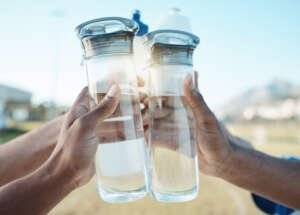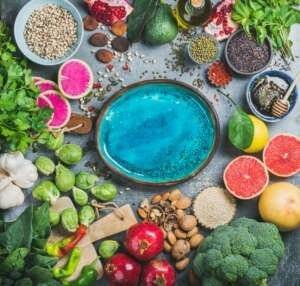Recovering from surgery is a demanding process for the body, requiring comprehensive care to promote healing and minimize complications. Among the critical aspects of recovery, maintaining proper hydration and electrolyte balance is essential for optimal healing. Hydration ensures vital bodily functions like nutrient absorption and circulation, while electrolytes support muscle recovery, nerve function, and tissue repair. Here, we explore the importance of post-surgical hydration and electrolytes alongside practical ways to restore balance for a smoother recovery.

Why Hydration and Electrolytes Are Crucial Post-Surgery
Hydration plays an integral role in regulating bodily functions such as blood flow, temperature control, and the removal of waste products. Surgery often leads to fluid loss through perspiration, anaesthesia, and drainage from surgical sites, making hydration even more vital during recovery. Without sufficient hydration, recovery slows, increasing the risk of complications.
Electrolytes—minerals like sodium, potassium, calcium, magnesium, and chloride—regulate fluid levels, muscle contractions, and nerve impulses. Post-surgery, electrolyte balance is often disrupted, leading to fatigue, low blood pressure, or even kidney issues. Replenishing electrolytes helps restore balance and aids in wound healing, inflammation reduction, and overall recovery.
Signs of Dehydration and Electrolyte Imbalance
Common symptoms indicating dehydration or an electrolyte imbalance include:
- Persistent thirst
- Dark urine
- Fatigue or dizziness
- Dry mouth
- Muscle weakness
If these symptoms persist post-surgery, it’s crucial to consult a healthcare professional.
Top Electrolyte-Rich Foods to Support Recovery

Including electrolyte-rich foods in your post-surgical diet can accelerate healing and restore balance. Some of the best options include:
- Bananas
- Nutrient: Potassium
- Benefit: Supports muscle function and prevents cramping.
- Sweet Potatoes
- Nutrients: Potassium, magnesium, calcium
- Benefit: Promotes tissue repair and reduces swelling.
- Coconut Water
- Nutrients: Potassium, sodium
- Benefit: Natural hydration and electrolyte replenishment.
- Leafy Greens (Spinach, Kale)
- Nutrients: Magnesium, calcium, potassium
- Benefit: Supports bone health and muscle relaxation.
- Nuts and Seeds (Almonds, Cashews, Chia Seeds)
- Nutrients: Magnesium, calcium
- Benefit: Aids in nerve function and tissue recovery.
- Avocados
- Nutrient: Potassium
- Benefit: Reduces oxidative stress and inflammation.
- Hydrating Fruits (Watermelon, Cucumber)
- Nutrients: Water, potassium
- Benefit: Boosts hydration while replenishing electrolytes.
Fluids and Supplements for Replenishment
In addition to foods, fluids such as electrolyte drinks, broths, or oral rehydration solutions can help restore balance. Consult your healthcare provider to determine if electrolyte supplements are necessary based on your surgical needs.
Practical Tips for Maintaining Balance
- Stay Hydrated: Drink 8–10 glasses of water daily or as recommended.
- Balanced Meals: Combine protein, electrolytes, and anti-inflammatory foods.
- Small, Frequent Meals: Encourage nutrient absorption by spacing meals evenly.
- Consult a Dietitian: Seek professional advice to meet your unique recovery needs.
Conclusion
Proper hydration and electrolyte replenishment are critical components of post-operative recovery. By incorporating nutrient-dense foods like bananas, coconut water, and leafy greens, alongside adequate fluid intake, you can enhance tissue repair, reduce inflammation, and promote overall recovery.
For a tailored recovery plan, consult your healthcare provider or a registered dietitian to ensure your post-surgical care supports optimal healing and long-term health.
References
- Cleveland Clinic (2020). Electrolytes and Their Role in Health. Cleveland Clinic
- Harvard Health (2021). The Importance of Potassium and Sodium Balance. Harvard Health


